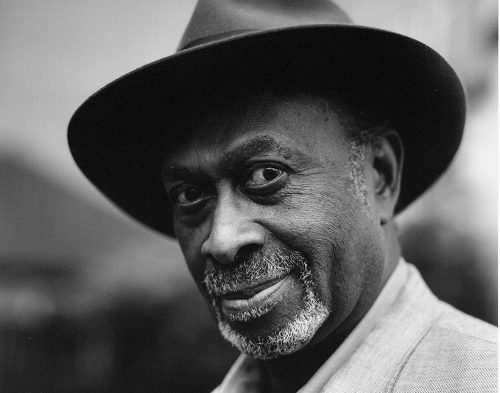
His poetry is notable for using a mixture of standard English and Jamaican Patois. Berry’s writing often “explores the relationship between black and white communities and in particular, the excitement and tensions in the evolving relationship of the Caribbean immigrants with Britain and British society from the 1940s onwards”.As the editor of two seminal anthologies, Bluefoot Traveller (1976) and News for Babylon (1984), he has been in the forefront of championing West Indian/British writing.
Born in coastal Jamaica in 1925, Berry was one of six children. His parents were subsistence farmers, and he enjoyed an early life of rural rhythms and experiences. By age ten, however, the young writer began to feel frustrated by what his village could offer. “I began to be truly bewildered by my everyday Jamaican life,” he remarked in a Horn Book piece quoted in Authors and Artists for Young Adults. “I felt something of an alien and an outsider and truly imprisoned.”
Indeed, rural Jamaica provided Berry with few opportunities. Though eager to learn about the wider world, the boy had access to few books. He had to share his single school text with all the other members of his family. But, through Bible stories and traditional folk tales, the young writer began to nurture what he described in the Horn Book as an “inner seeing,” and he discovered that he had “an inner life that could not be shared.”
When he was 17, during World War II, Berry went to work in the United States. But he resented the treatment of blacks there, and returned to Jamaica after four years. As he has written:
“America had run into a shortage of farm labourers and was recruiting workers from Jamaica. I was 18 at the time. My friends and I, all anxious for improvement and change, were snapped up for this war work and we felt this to be a tremendous prospect for us. But we soon realised, as we had been warned, that there was a colour problem in the United States that we were not familiar with in the Caribbean. America was not a free place for black people. When I came back from America, pretty soon the same old desperation of being stuck began to affect me. When the Windrush came along, it was godsend, but I wasn’t able to get on the boat…. I had to wait for the second ship to make the journey that year, the SS Orbita.”
Yet opportunities in the West Indies had not improved, and in 1948 Berry decided to try his luck in London. Working and attending school at night, Berry obtained training as a telegrapher, and worked in that field for more than two decades. At the same time, he began to write short stories and stage plays.
Settling in 1948 in Great Britain, he attended night school, trained and worked as a telegrapher in London, while also writing. He has been reported as saying: “I knew I was right for London and London was right for me. London had books and accessible libraries.”
In 1976 he compiled the anthology Bluefoot Traveller and in 1979 his first poetry collection, Fractured Circles, was published. In 1981 he won the Poetry Society’s National Poetry Competition, the first poet of West Indian origin to do so. He edited the landmark anthology News for Babylon (1984), considered “a ground-breaking publication because its publishing house Chatto & Windus was ‘mainstream’ and distinguished for its international poetry list”.
Berry has written many books for young readers, including A Thief in the Village and Other Stories (1987), The Girls and Yanga Marshall (1987), The Future-Telling Lady and Other Stories (1991), Anancy-Spiderman (1988), Don’t Leave an Elephant to Go and Chase a Bird (1996) and First Palm Trees (1997).
His most recent book of poetry, A Story I Am In: Selected Poems (2011), draws on five earlier collections: Fractured Circles (1979), Lucy’s Letters and Loving (1982, Chain of Days(1985), Hot Earth Cold Earth (1995) and Windrush Songs (2007).
In 1995, his “Song of a Blue Foot Man” was adapted and staged at the Watford Palace Theatre Theatre.
In 1990, Berry was made an Officer of the Order of the British Empire (OBE) for services to poetry. In September 2004 he was one of fifty Black and Asian writers who have made major contributions to contemporary British literature who featured in the historic “A Great Day in London” photograph at the British Library. His archives were acquired by the British Library in October 2012. Amongst other items, the archive contains drafts of an unpublished novel, The Domain of Sollo and Sport
